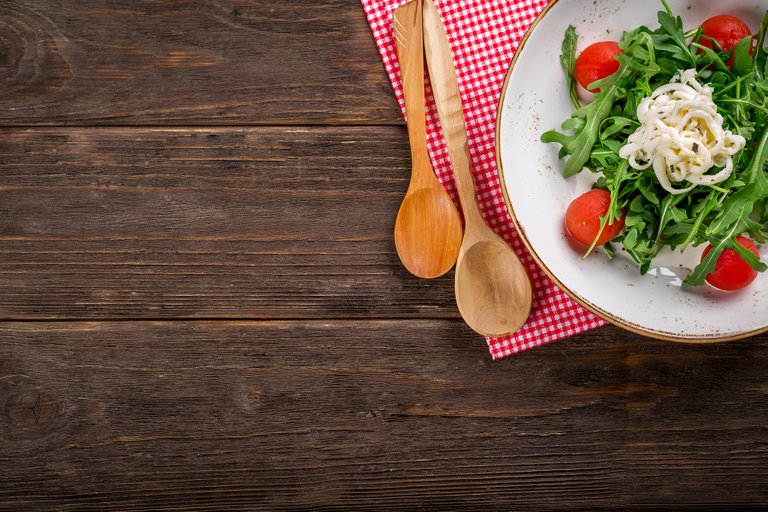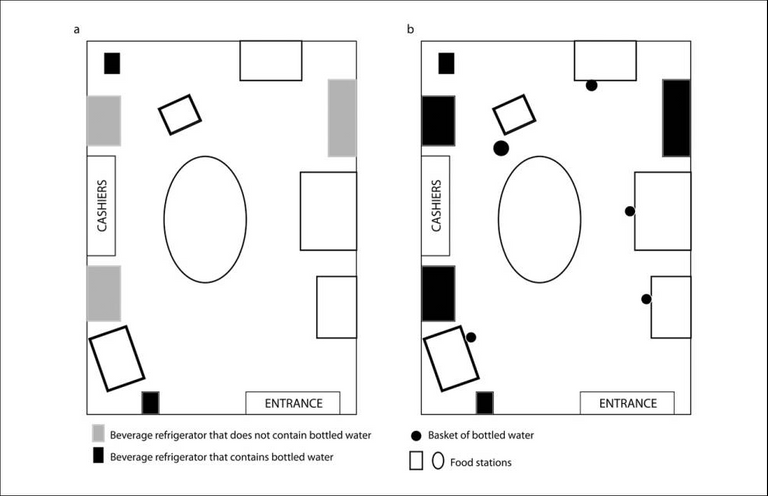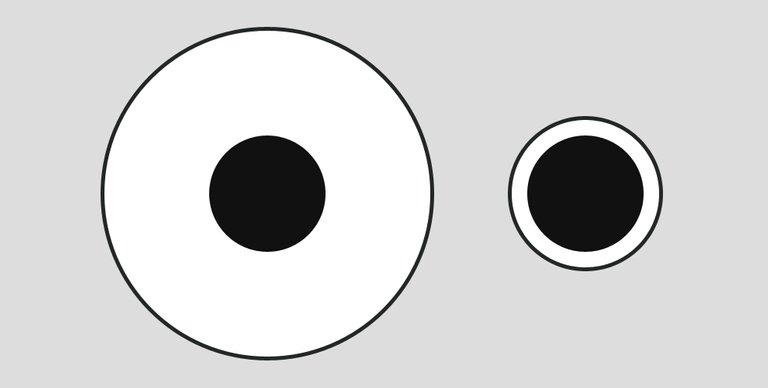Adhering to a good diet. It's something everybody knows they ought to do, yet few of us do as reliably as we might want. The reason for this guide is to share viable procedures for how to eat solid and separate the art of why we regularly neglect to do as such.
Presently, I don't claim to have an immaculate eating regimen, however my examination and composing on social brain research and propensity arrangement has helped me build up a couple of basic procedures for building and reinforcing an adhering to a good diet propensity absent much exertion or thought.

Image Credit; Pixabay
😋😋The Art of Good dieting 😋😋

Each nutritionist and eating routine master discusses what to eat. Rather, I'd get a kick out of the chance to examine why we eat the way we do and how we can change that. The reason for this guide is to share the science and methodology you have to get the outcomes you need.
Presently, the advantages of good nourishment are genuinely evident to the vast majority of us. You have more vitality, your wellbeing enhances, and your profitability blooms. Adhering to a good diet likewise assumes a gigantic part in keeping up a sound weight, which implies a diminished danger of sort 2 diabetes, certain diseases, heart issues, hypertension, and a large group of other wellbeing afflictions. (Hereditary qualities likewise assumes a noteworthy part. I'm not some insane individual who figures qualities don't make a difference.)
Be that as it may, if there are such huge numbers of good purposes behind adhering to a good diet, why is it so hard to really do? To answer that inquiry, we should begin by realizing why we pine for lousy nourishment.
Why We Ache for Lousy nourishment
Steven Witherly is a sustenance researcher who has put over the most recent 20 years examining what makes certain nourishments more addictive than others. A significant part of the science that takes after is from his magnificent report, Why People Like Low quality nourishment.As indicated by Witherly, when you eat delicious sustenance, there are two factors that make the experience pleasurable.
To begin with, there is the vibe of eating the nourishment. This incorporates what it suggests a flavor like (salty, sweet, umami, and so forth.), what it smells like, and how it feels in your mouth. This last quality — known as "orosensation" — can be especially imperative. Nourishment organizations will burn through a huge number of dollars to find the most fulfilling level of mash in a potato chip. Sustenance researchers will test for the ideal measure of fail in a pop. These components all consolidate to make the vibe that your cerebrum partners with a specific nourishment or drink.
The second factor is the real macronutrient cosmetics of the nourishment — the mix of proteins, fats, and starches that it contains. On account of shoddy nourishment, sustenance makers are searching for an ideal blend of salt, sugar, and fat that energizes your mind and makes you return for additional.
Here's the manner by which they do it…
How Nourishment Researchers Make Yearnings
There is a scope of components that researchers and sustenance makers use to make nourishment more addictive.Dynamic complexity. Dynamic difference alludes to a blend of various sensations in a similar sustenance. In the expressions of Witherly, sustenances with dynamic differentiation have "an eatable shell that goes crunch took after by something delicate or rich and brimming with taste-dynamic mixes. This administer applies to an assortment of our most loved sustenance structures — the caramelized best of a creme brulee, a cut of pizza, or an Oreo treat — the cerebrum finds crunching through something like this extremely novel and exciting."
Salivary reaction. Salivation is a piece of the experience of eating sustenance, and the more a nourishment makes you salivate, the more it will swim all through your mouth and cover your taste buds. For instance, emulsified nourishments like margarine, chocolate, plate of mixed greens dressing, frozen yogurt, and mayonnaise advance a salivary reaction that foams your taste buds with goodness. This is one motivation behind why numerous individuals appreciate sustenances that have sauces or coatings on them. The outcome is that nourishments that advance salivation complete an upbeat little tap move on your cerebrum and taste superior to anything ones that don't.
Quick nourishment emergency and vanishing caloric thickness. Nourishments that quickly vanish or "soften in your mouth" flag to your mind that you're not eating as much as you really may be. At the end of the day, these sustenances truly tell your cerebrum that you're not full, despite the fact that you're eating a ton of calories.
In his top of the line book, Salt Sugar Fat (book recording), writer Michael Greenery depicts a discussion with Witherly that clarifies vanishing caloric thickness consummately…
He focused right in on the Cheetos. "This," Witherly stated, "is a standout amongst the most grandly built nourishments on the planet, regarding unadulterated delight."
"I carried him two shopping sacks loaded with an assortment of chips to taste. He focused right in on the Cheetos. "This," Witherly stated, "is a standout amongst the most gloriously built nourishments on the planet, regarding unadulterated delight." He ticked off twelve characteristics of the Cheetos that influence the mind to state more. In any case, the one he concentrated on most was the puff's uncanny capacity to dissolve in the mouth. "It's called vanishing caloric thickness," Witherly said. "On the off chance that something dissolves down rapidly, your mind believes that there's no calories in it … you can simply continue eating it for eternity."
Tactile particular reaction. Your mind likes assortment. With regards to sustenance, in the event that you encounter a similar taste again and again, at that point you begin to get less delight from it. At the end of the day, the affectability of that particular sensor will diminish after some time. This can occur in not more than minutes.
Low quality nourishments, be that as it may, are intended to dodge this tangible particular reaction. They give enough taste to intrigue (your cerebrum doesn't become weary of eating them), yet it's not all that invigorating that your tactile reaction is dulled. This is the reason you can swallow a whole pack of potato chips and still be prepared to eat another. To your mind, the crunch and vibe of eating Doritos is novel and fascinating unfailingly.
Calorie thickness. Low quality nourishments are intended to persuade your cerebrum that it is getting sustenance, yet to not top you off. Receptors in your mouth and stomach inform your cerebrum concerning the blend of proteins, fats, and sugars in a specific sustenance, and how filling that nourishment is for your body. Lousy nourishment gives simply enough calories that your cerebrum says, "Indeed, this will give you some vitality" however not all that numerous calories that you believe "No more, I'm full." The outcome is that you hunger for the sustenance in the first place, yet it sets aside very some opportunity to feel full from it.
Recollections of past eating encounters. This is the place the psychobiology of shoddy nourishment truly conflicts with you. When you eat something delectable (say, a pack of potato chips), your cerebrum enrolls that inclination. Whenever you see that sustenance, notice that nourishment, or even read about that nourishment, your cerebrum begins to trigger the recollections and reactions that came when you ate it. These recollections can really cause physical reactions like salivation and make the "mouth-watering" longing for that you get when considering your most loved sustenances.
These variables all join to make handled sustenance scrumptious and attractive to our human brains. When you join the science behind these sustenances with the extraordinary commonness of nourishment (modest cheap food all over the place), eating solid turns out to be difficult to do.
The most effective method to Make Adhering to a good diet Less demanding

A great many people feel that building better propensities or changing your activities is about self control or inspiration. In any case, the more I take in, the more I trust that the main driver of conduct change is your condition.
Your condition has an unfathomable capacity to shape your conduct. No place is this more valid than with sustenance. What we eat once a day is frequently a consequence of what we are displayed.
Give me a chance to share a fascinating investigation to demonstrate you precisely what I mean…
The Significance of Condition for Adhering to a good diet
Anne Thorndike is an essential care doctor at Massachusetts General Healing facility in Boston. Thorndike and her partners directed a six-month ponder that was distributed in the American Diary of General Wellbeing.
The analysts began by changing the decision engineering of the beverages in the cafeteria. Initially, there were three fundamental fridges, which were all loaded with pop. The scientists ensured that water was added to every one of those units and furthermore set bushels of filtered water all through the room.
The picture beneath delineates what the room looked like before the progressions (Figure A) and after the progressions (Figure B). The dull boxes demonstrate regions where filtered water is accessible.

Image From The American Diary of General Wellbeing, April 2012.
What was the deal? Throughout the following 3 months, the quantity of pop deals dropped by 11.4 percent. In the interim, filtered water deals expanded by 25.8 percent. Comparable alterations and results were made with sustenance alternatives. No one said a word to the guests who ate at the cafeteria. The scientists just changed the earth and individuals normally stuck to this same pattern.
Decision engineering is considerably more vital when you're as of now pushed, tired, or occupied. In case you're now exhausted, you're most likely not going to experience a great deal of push to cook a solid supper or fit in an exercise. You'll get or do whatever is least demanding.
That implies that on the off chance that you take only a smidgen of time today to compose your room, your office, your kitchen, and different regions, at that point that change in decision design can direct you toward better decisions notwithstanding when your self discipline is blurring. Plan for apathy.
The most effective method to Eat Sound Without Taking note
Brian Wansink is a teacher at Cornell College, and he has finished an assortment of concentrates on how your condition shapes your eating choices. A large number of the thoughts underneath originate from his mainstream book, Careless Eating (book recording). Here are a portion of his best commonsense methodologies for utilizing decision engineering to make good dieting less demanding.1. Utilize littler plates. Greater plates mean greater parts. Furthermore, that implies you eat more. As indicated by an investigation led by Wansink and his examination group, in the event that you rolled out a basic improvement and served your supper on 10-inch plates rather than a 12-inch plate, you would eat 22% less nourishment through the span of the following year.
On a related note, in case you're supposing "I'll simply put less nourishment on my plate" … it isn't so much that basic. The photo beneath clarifies why. When you eat a little part off of a huge plate, your mind feels unsatisfied. Then, a similar segment will feel all the more filling when eaten off of a little plate. The circles in the picture underneath are a similar size, however your mind (and stomach) doesn't see them that way.
This picture demonstrates how little bit sizes can look filling on a little plate, however meager on a vast plate. Knowing this can help with adhering to a good diet.

This picture indicates how little bit sizes can look filling on a little plate, however meager on an expansive plate.
2. Need to drink less liquor or pop? Utilize tall, thin glasses rather than short, fat ones.
Investigate the picture underneath. Is the level or vertical line longer?

Like the lines in this photograph, vertical glasses will look greater level ones and will in this manner normally enable you to drink less.
Surprisingly, the two lines are a similar length, yet our cerebrum tends to overestimate vertical lines. At the end of the day, taller beverages look greater to our eyes than round, even mugs do. What's more, since stature influences things to look greater than width, you'll really drink less from taller glasses. Actually, you will normally drink around 20% less from a tall, slim glass than you would from a short, fat glass. (Cap tip to Darya Pino for initially sharing this picture and thought.)
3. Utilize plates that have a high balance shading with your nourishment. As I specified in this article, when the shade of your plate coordinates the shade of your nourishment, you normally serve yourself more in light of the fact that your mind experiences difficulty recognizing the bit estimate from the plate. Along these lines, dull green and dim blue make incredible plate hues since they appear differently in relation to light nourishments like pasta and potatoes (which implies you're probably going to serve less of them), however don't balance especially with verdant greens and vegetables (which implies you're probably going to put a greater amount of them on your plate).
4. Show sound nourishments in an unmistakable place. For instance, you could put a bowl of organic products or nuts close to the front entryway or elsewhere that you go by before you go out. When you're eager and in a surge, you will probably get the main thing you see.
5. Envelop unfortunate sustenances by tin thwart. Enclose sound nourishments by cling wrap. The familiar axiom, "out of the picture, therefore irrelevant" ends up having some fact to it. Eating isn't only a physical occasion, yet additionally an enthusiastic one. Your brain regularly figures out what it needs to eat in light of what your eyes see. In this way, on the off chance that you stow away unfortunate sustenances by wrapping them up or hiding them in less noticeable spots, at that point you are more averse to eat them.
6. Keep sound sustenances in bigger bundles and compartments, and undesirable nourishments in littler ones. Huge boxes and compartments tend to get your attention more, consume up room in your kitchen and wash room, and generally get in your direction. Accordingly, will probably see them and eat them. In the mean time, littler things can stow away in your kitchen for a considerable length of time. (Simply investigate what you have lying around this moment. It's presumably little jars and compartments.)
Reward tip: on the off chance that you purchase a huge box of something unfortunate, you can re-bundle it into littler Ziploc sacks or holders, which should make it more outlandish that you'll gorge and eat a considerable measure on the double.
What Would it be advisable for me to Eat?
As I said at the beginning, this isn't a guide about what to eat. It's a guide regarding why we eat the way we do and how to make a move. So, I'll offer two recommendations with respect to what to put on your plate.1. Eat more greens. There isn't an accord on the best eating routine, however practically everybody concedes to a certain something: eat more veggies. You'll be unable to locate a solitary eating routine that doesn't think eating more plants is a smart thought.
2. Eat an assortment of sustenances. As we secured before, the mind longs for oddity. While you will most likely be unable to reproduce the crunchy/rich differentiation of an Oreo, you can shift your eating sufficiently routine to keep things fascinating. For instance, you could plunge a carrot (crunchy) in some hummus (velvety) and get a novel sensation. Also, discovering approaches to add new flavors and flavors to your dishes can make eating sound nourishments a more alluring background.
Good dieting doesn't need to be tasteless. Stir up your nourishments to get diverse sensations and you may think that its less demanding than eating similar sustenances again and again. (Sooner or later, be that as it may, you may need to begin to look all starry eyed at weariness.)
Two Basic Approaches to Practice good eating habits
The fundamental thought of most great weight control plans is the same: eat entire nourishments that are natural and that developed or lived outside. Some of them have distinctive varieties — no creature items, no grains, and so forth — however the majority of them fit the general "genuine nourishment" system.The issue is that — in case you're anything like me — you will eat whatever is near you, regardless of whether it originated from The compelling force of nature or not. Subsequently, the best procedure is to encircle yourself with solid sustenance.
1. Utilize the "External Ring" System. When I go to the supermarket, I just stroll around the "external ring" of the store. I don't stroll down the paths. The external ring is the place the sound sustenance typically lives: natural products, vegetables, lean meats, fish, eggs, and nuts. These are things that developed or lived outside. That is the thing that I eat.
The passageways are the place the majority of the boxed and prepared stuff is put. Try not to go down those paths and you won't purchase those sustenances. Try not to purchase those nourishments and they won't be around for you to eat. Attempt this whenever you go to the store and do your best to not to make special cases.
Indeed, there will be the periodic time that you'll have to go down a passageway to get flavors or get a container of olive oil, however this is uncommon. The last three times I've been at the market, I have effectively remained on the "external ring" and I wager you can do likewise.
Instructions to Eat Whatever You Need Without Feeling Regretful
2. Never Miss Twice. I think life is intended to be lived euphorically. I want to judge myself for eating pizza or to feel regretful for drinking a lager. However, I likewise realize that I feel greatly improved when I practice good eating habits.Keeping in mind the end goal to adjust the two, I have a basic decide that I attempt to take after: at whatever point I eat an unfortunate supper, I tail it with a sound one.
Missing once is fine, yet I never need to miss a sound supper twice. Top entertainers commit errors like every other person, however they get back on track quicker than the vast majority. That is the thing that I attempt to do with my eating regimen. I don't stress over having a great time and I endeavor to appreciate life, however I additionally utilize this straightforward manage to control me back toward a sound eating regimen as fast as would be prudent.
😋😋 Instructions to Adhere to a Good dieting Propensity 😋😋

Address the Root Issue of Unfortunate Eating

We as a whole have unpleasant circumstances that emerge in our lives. Figuring out how to manage worry diversely can enable you to conquer the addictive draw of lousy nourishment. This could incorporate basic breathing methods or a short guided contemplation. Or then again something more physical like exercise or making workmanship.
Step by step instructions to State No to Allurement
Figuring out how to state no is a standout amongst the most valuable abilities you can grow, particularly with regards to carrying on with a sound life. Research is beginning to demonstrate that little changes can make it less demanding for you to state no, oppose enticement and stick to adhering to a good diet propensities.In an examination contemplate distributed in the Diary of Shopper Exploration, 120 understudies were part into two unique gatherings.
The distinction between these two gatherings was stating "I can't" contrasted with "I don't."
One gathering was informed that each time they were looked with an allurement, they would let themselves know "I can't do X." For instance, when enticed with frozen yogurt, they would state, "I can't eat dessert."
At the point when the second gathering was looked with an allurement, they were advised to state "I don't do X." For instance, when enticed with dessert, they would state, "I don't eat frozen yogurt."
Subsequent to rehashing these expressions, every understudy addressed an arrangement of inquiries inconsequential to the examination. When they wrapped up their inquiries, the understudies went to turn in their answer sheet, feeling that the investigation was finished. Truly, it was simply starting.
As every understudy left the room and turned in their answer sheet, they were offered a complimentary treat. The understudy could pick between a chocolate sweet treat or a granola wellbeing bar. As the understudy left, the scientist would stamp their nibble decision on the appropriate response sheet.
The understudies who let themselves know "I can't eat X" ate the chocolate sweet treat 61% of the time. In the mean time, the understudies who let themselves know "I don't eat X" ate the chocolate pieces of candy just 36% of the time. This basic change in wording essentially enhanced the chances that every individual would settle on a more solid nourishment decision.
For what reason accomplishes something so little have such a major effect?
The One Expression That Will Enable You To practice good eating habits
Your words help to outline your feeling of strengthening and control. Besides, the words that you utilize make an input circle in your cerebrum that effects your future practices.For instance, each time you let yourself know "I can't", you're making a criticism circle that is an indication of your constraints. This wording demonstrates that you're driving yourself to accomplish something you would prefer not to do.
In correlation, when you let yourself know "I don't", you're making a criticism circle that helps you to remember your control and control over the circumstance. It's an expression that can impel you toward getting out from under your negative behavior patterns and following your great ones.
Heidi Allow Halvorson is the chief of the Inspiration Science Center at Columbia College. Here's the means by which she clarifies the distinction between saying "I don't" contrasted with "I can't"…
"I don't" is experienced as a decision, so it feels enabling. It's a confirmation of your assurance and resolve. "I can't" is certainly not a decision. It's a limitation, it's being forced upon you. So supposing "I can't" undermines your feeling of intensity and individual office.
At the end of the day, the expression "I don't" is a mentally enabling approach to state no, while the expression "I can't" is a mentally depleting approach to state no.
Maybe in particular, an adjustment in dialect prompts an adjustment in attitude. You would now be able to use your new, engaged attitude in every future circumstance, which is the reason an unobtrusive move can prompt altogether different results as time goes on.
Finally
I trust you discovered this short guide on adhering to a good diet valuable.
References
Why Humans Like Junk Food.
Adhering to a good diet requires money, good schedule and proper planing not excluding good time management.
On the average, Nigerians lack the capacity to adhere to good diet
Nice post, thanks for sharing @glory001
Hello @glory001,
Air-Clinic sends her greeting!
We are happy that you are creating amazing medical contents on Steemit using the #Air-Clinic tag.
This article was found as a result of #Air-Curie Initiative!We encourage you to keep it up!
Expect an upvote from @Air-Clinic soon!
If you haven't joined us on Discord please do so by clicking here
Cheers!
@drqamranbashir- Air-Clinic Curator!